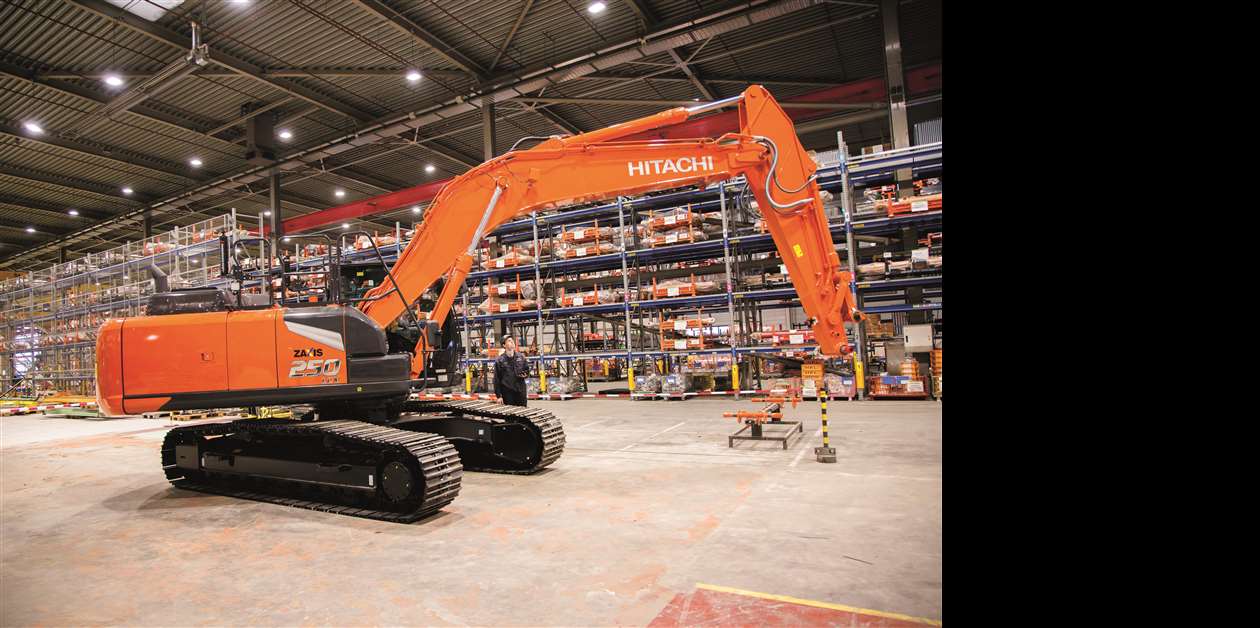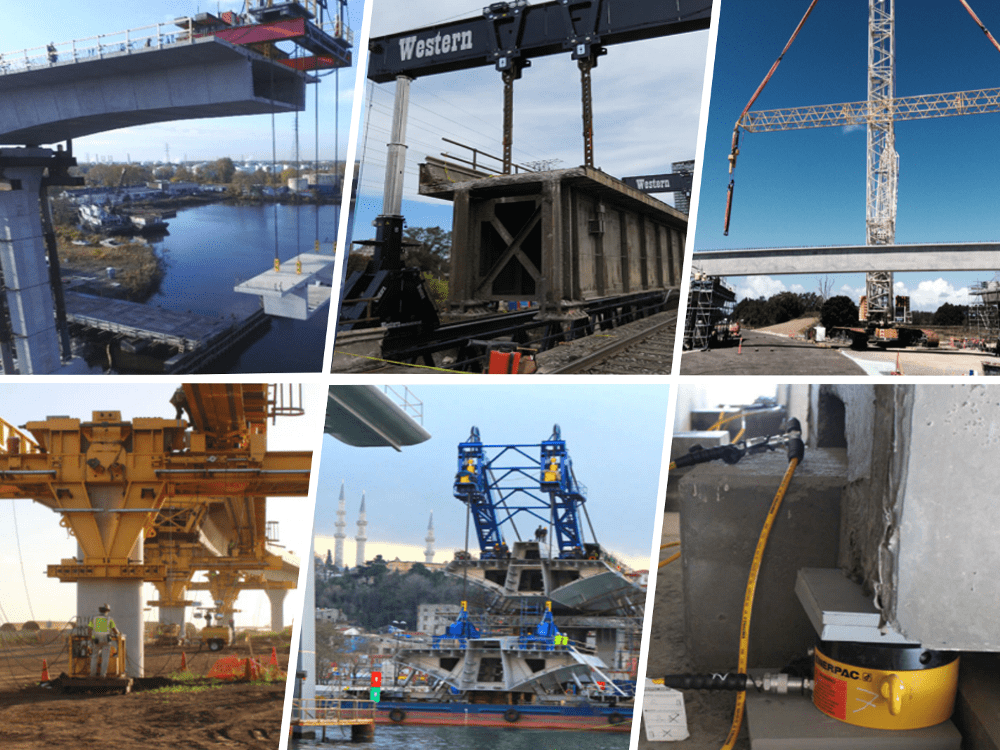Rental Company in Tuscaloosa AL: Top-Quality Equipment for each Task
Rental Company in Tuscaloosa AL: Top-Quality Equipment for each Task
Blog Article
Checking Out the Financial Perks of Renting Construction Equipment Contrasted to Having It Long-Term
The choice in between renting and possessing building equipment is essential for monetary administration in the market. Renting deals immediate expense financial savings and functional adaptability, enabling firms to allocate resources extra efficiently. On the other hand, ownership includes substantial lasting financial commitments, consisting of upkeep and depreciation. As service providers consider these alternatives, the impact on capital, job timelines, and technology accessibility ends up being significantly substantial. Understanding these nuances is vital, specifically when taking into consideration just how they align with particular job demands and monetary approaches. What variables should be prioritized to guarantee optimum decision-making in this complicated landscape?
.png)
Expense Contrast: Renting Out Vs. Owning
When evaluating the financial implications of possessing versus leasing construction devices, a thorough cost contrast is crucial for making informed decisions. The choice in between possessing and renting out can dramatically affect a company's lower line, and comprehending the linked costs is essential.
Renting out construction equipment generally includes lower in advance costs, permitting organizations to allocate capital to other operational demands. Rental expenses can collect over time, potentially surpassing the expenditure of ownership if tools is needed for an extended duration.
Conversely, owning building and construction tools calls for a considerable preliminary investment, in addition to ongoing expenses such as insurance policy, depreciation, and financing. While ownership can lead to long-lasting cost savings, it likewise ties up resources and might not provide the same degree of adaptability as leasing. Additionally, owning equipment demands a dedication to its application, which may not constantly line up with project demands.
Inevitably, the decision to rent out or have ought to be based on an extensive evaluation of details job requirements, economic ability, and long-term tactical goals.

Upkeep Costs and Responsibilities
The selection in between leasing and possessing building and construction devices not only involves financial considerations yet also includes ongoing maintenance expenses and duties. Possessing equipment requires a considerable dedication to its upkeep, which consists of regular assessments, fixings, and possible upgrades. These responsibilities can quickly build up, resulting in unforeseen expenses that can stress a budget plan.
In contrast, when leasing equipment, maintenance is commonly the responsibility of the rental business. This plan allows service providers to stay clear of the financial concern associated with damage, along with the logistical obstacles of scheduling repair work. Rental contracts typically include arrangements for maintenance, implying that contractors can concentrate on completing projects instead than bothering with tools problem.
Moreover, the diverse range of tools available for rental fee makes it possible for companies to choose the most recent designs with advanced innovation, which can improve efficiency and performance - scissor lift rental in Tuscaloosa Al. By choosing rentals, services can avoid the lasting liability of tools depreciation and the linked maintenance frustrations. Eventually, reviewing maintenance expenses and responsibilities is vital for making an informed choice concerning whether to rent or have building and construction devices, substantially influencing general project prices and functional efficiency

Depreciation Effect On Ownership

A significant variable to take into consideration in the choice to have construction tools is the impact of depreciation on total possession prices. Depreciation represents the decline in worth of the tools gradually, affected by elements such as usage, wear and tear, and developments in modern technology. As tools ages, its market value decreases, which can considerably impact the proprietor's monetary setting when it comes time to offer or trade the equipment.
For building companies, this depreciation can convert to significant losses if the devices is not used to its fullest capacity or if it ends up being outdated. Owners have to account for depreciation in their economic estimates, which can bring about greater general prices contrasted to renting out. Furthermore, the tax effects of depreciation can be intricate; while it might supply some tax benefits, these are frequently countered by the truth of decreased resale value.
Ultimately, the concern of devaluation emphasizes the significance of understanding the long-lasting monetary commitment involved in owning building tools. Companies should carefully assess just how commonly they will certainly use the equipment and the potential financial influence of devaluation to make an educated decision regarding possession versus renting.
Economic Versatility of Renting
Renting out construction tools provides considerable financial versatility, enabling business to designate resources more effectively. This versatility is especially crucial in a market identified by rising and fall project demands and varying workloads. By choosing to lease, companies can stay clear of the significant capital investment needed for buying equipment, preserving cash money flow get more for various other functional needs.
Additionally, leasing tools enables companies to customize their equipment selections to particular project demands without the long-term dedication connected with possession. This suggests that businesses can quickly scale their equipment stock up or down based on existing and awaited project demands. Consequently, this versatility lowers the risk of over-investment in machinery that may end up being underutilized or outdated over time.
Another economic advantage of renting out is the possibility for tax obligation benefits. Rental repayments are typically considered operating budget, enabling for immediate tax obligation reductions, unlike devaluation on owned and operated devices, which is topped several years. scissor lift rental in Tuscaloosa Al. This prompt expense recognition can further improve a company's cash money setting
Long-Term Project Considerations
When reviewing the long-lasting demands of a construction organization, the decision in between renting and having tools becomes more complex. Secret aspects to take into consideration consist of task period, frequency of use, and the nature of upcoming tasks. For jobs with extensive timelines, purchasing equipment might appear helpful as a result of the potential for reduced overall expenses. Nonetheless, if the equipment will not be used continually across jobs, owning might bring about underutilization and unneeded expenditure on insurance coverage, maintenance, and storage.
In addition, technological innovations position a considerable consideration. The building and construction industry is developing rapidly, with new equipment offering enhanced efficiency and safety and security features. Renting out enables business to access the most up to date technology without dedicating to the high upfront costs connected more with investing in. This flexibility is particularly helpful for organizations that manage varied projects needing different kinds of tools.
Moreover, monetary security plays an important role. Having tools usually entails considerable capital financial investment and devaluation issues, while renting out permits even more predictable budgeting and cash flow. Eventually, the choice between leasing and owning ought to be lined up with the critical objectives of the construction organization, considering both current and expected project demands.
Conclusion
In conclusion, leasing construction devices uses substantial financial advantages over long-term ownership. Eventually, the choice to rent instead than own aligns with the vibrant nature of construction tasks, allowing for flexibility and access to the newest equipment without the monetary problems associated with possession.
As equipment ages, its market worth diminishes, which can dramatically impact the proprietor's financial placement when it comes time to offer or trade the tools.
Renting out building and construction equipment provides significant monetary versatility, permitting firms to assign sources much more efficiently.Additionally, leasing tools makes it possible for firms to customize their devices selections to certain job needs without the long-lasting commitment associated with ownership.In verdict, renting out construction devices supplies significant economic benefits over long-lasting ownership. Eventually, the decision to lease instead than own aligns click resources with the dynamic nature of building projects, enabling for versatility and access to the newest equipment without the monetary problems linked with possession.
Report this page